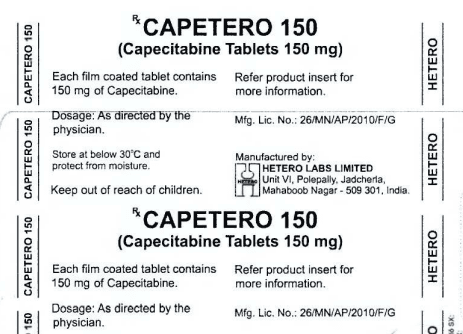This is an automatically translated article.
Posted by Master, Doctor Mai Vien Phuong - Head of Department of Gastrointestinal Endoscopy - Department of Medical Examination & Internal Medicine - Vinmec Central Park International General Hospital
With an increase in life expectancy and an increase in the geriatric population, screening for colorectal cancer in the elderly may have a number of consequences. Several detailed subgroup analyzes of screening trials have been reported; very little empirical data exist on the best time to discontinue screening.
1. Overview
In the United States, colorectal cancer (CRC) ranks second after lung cancer as the leading cause of cancer death and the third most common cancer in both men and women. One study estimates that by 2020, about 147,950 new cases of colorectal cancer will be diagnosed and 53,200 people will have died from the disease. From 2011 to 2015, the average annual incidence per 100,000 population was 45.9 and 34.6 for men and women, respectively. The incidence and mortality of colorectal cancer has been steadily decreasing, by about 1.7% and 3.2% per year, respectively.
The decline started in the mid-1980s and has accelerated since the early 2000s. It is attributed to changes in risk factors, early detection of cancer through colorectal cancer screening. colonoscopy and the removal of precancerous polyps by colonoscopy, in addition to advances in treatment and surgery.
2. Screening for colorectal cancer in the elderly
With an increase in life expectancy and an increase in the geriatric population, screening for colorectal cancer in the elderly has significant public health consequences. Because several detailed subgroup analyzes of screening trials have been reported, very little empirical data exist on the best time to discontinue screening.
There are a number of reasons why older adults may not receive the same benefits or may even be harmed by screening, the first being a reduced life expectancy. The benefits of polypectomy are delayed for 7 to 10 years after screening, so screening has limited benefit for people who are not expected to live at least another 7 to 10 years. Second, there is an increase in competing causes of death in the elderly. The value of screening decreases as the risk of death from other causes increases. Therefore, for the elderly, the benefits may become so small that they are insignificant or even negatively impact their lifespan. Third, older people may be more susceptible to the risks associated with screening than their younger counterparts. These risks range from anxiety, false-positive results, and unnecessary treatments to complications from screening-related procedures. Examples include dehydration, electrolyte disturbances, impact on renal function during preparation, changes in anticoagulant or antiplatelet agents, risk of perforation and bleeding during colonoscopy, and other adverse events. cardiovascular events prior to the procedure.
MORE: What is colorectal cancer screening?

3. Weighing the benefits of prevention and the risks of the procedure when screening for colorectal cancer in older patients
In older patients, the benefits of early detection and prevention of colorectal cancer may be offset by a higher risk of procedure-related harms and reduced health and life expectancy . Several authors have addressed this problem with different approaches. Lin et al. reported that older adults who were screened benefited 15% or less from screening compared with younger adults in terms of increased life expectancy. In their analysis of elderly people aged 70 to 94 years, Ko et al found that the risk of screening-related complications was higher than the estimated benefit from screening in some subgroups.
A more recent simulation study found that the optimal age for abandoning fecal occult screening varies significantly based on sex, comorbidities, and screening history. Ranges from age 66 for those in poor health and prior adequate screening to age 90 for individuals in good health with no prior screening. Therefore, the point at which the benefits of screening become negligible or outweigh the potential harms will likely vary significantly between individuals.

4. Factors determining whether to continue or stop screening in the elderly
The decision to continue or stop screening in the elderly should not be based solely on age and time, but should also take into account health status, screening history, and benefits. In addition, there are harms of screening as well as patient values and preferences. The most recent guidelines for colorectal cancer screening from the American Foundation for Disease Control and Prevention conclude that in adults aged 76–85 years, the decision to screen for colorectal cancer should be individualized. taking into account the patient's overall health and screening history.
Guidelines specify that screening would be most appropriate for people who have not been screened before, who are healthy enough for treatment if colorectal cancer is found, and who do not have a significant life expectancy. In adults aged 86 years and older, screening for competing causes of death is not recommended. The guideline identified when to stop screening as an important area of future research. Although, further studies are awaited, providers should consider life expectancy, patient risk, values, preferences and participate in joint decision making to screen these individuals. over 75 years old.
Vinmec International General Hospital is implementing a Package of Screening and Early Detection of Colorectal Cancer, implemented by a team of experienced doctors and nurses in the field of colorectal cancer diagnosis and treatment. colonoscopy, with the support of a system of modern technological equipment, a full range of specialized means to diagnose the disease and stage it before treatment such as: Endoscopy, CT scan, PET-CT scan, MRI, Mammogram, histopathological diagnosis, gene-cell testing, ... help detect colon cancer early even when there are no symptoms.
Please dial HOTLINE for more information or register for an appointment HERE. Download MyVinmec app to make appointments faster and to manage your bookings easily.
References
Shaukat, Aasma MD et al. ACG Clinical Guidelines: Screening for Colorectal Cancer 2021. American Journal of Gastroenterology: March 2021 - Volume 116 - Issue 3 - pp. 458-479













